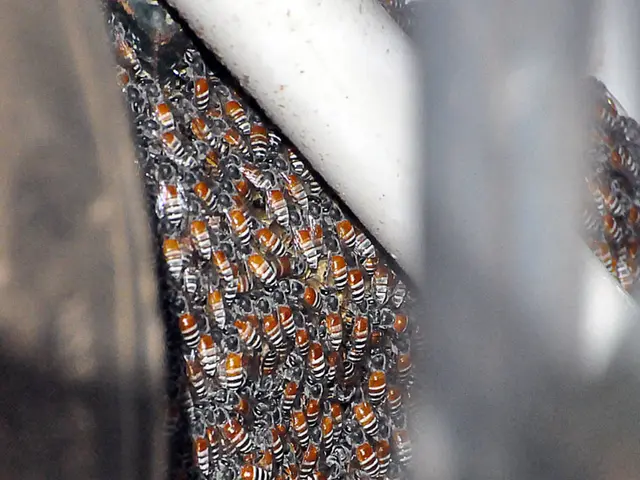Decaying fruits and democratic structures
The Gallant Commission unveils the shortcomings of the SAAQclic project, revealing it's not just about ballooning costs, but a dwindling trust in our institutions that signals a threat to our democracy.
At the commission established to scrutinize the hefty cost overruns of the digital transformation project for the SAAQ, a crown corporation, the sentiment was somber. As Francois Geoffrion, former board member, put it, "We've screwed up twice." A blunt statement, yet one that encapsulates the disarray at the hearing set up by Quebec to shed light on the financial abyss of the CASA project, and all its tumultuous testimonies.
For those unfamiliar, the digital transformation of the SAAQ, dubbed CASA, with SAAQclic as its flagship component, has plunged into a financial quagmire to the tune of $1.1 billion. This has been spurred by high-risk forecasts, a striking lack of digital expertise, and an excessive reliance on consultants who added an additional 24,000 hours to the original bill, at $350 per hour—originally set at $82 for most cases. When arrogance merges with improvisation, citizens bear the brunt of the bill.
A misfortune that casts suspicion on all
We commonly preach against judging a whole based on the actions of a few. However, in politics, this is precisely what happens. When one individual takes advantage of the system or an elected official feigns ignorance, the entire public service, and sometimes the political world, comes under question.
The consequence? Public disengagement. Dropouts among voters. Apathetic young voters. Tremendous losses for sincere candidacies.
For an entire generation, the term "commission" has come to signify scandal. From Gomery to Bastarache, Charbonneau, and now Gallant, each inquiry has laid bare malpractices that nurture the voter's cynicism towards the political class, fostering the belief that politicians wield a disengaged, occasionally corrupt power, often complicit through omission.
With each new commission, the already eroded trust suffers another blow. And each time, the same refrain rings out: "They're all the same! They're all corrupt!" Yet, this is not entirely true. But in the public arena, perception often trumps reality.
Those who persist
I have met countless men and women in politics who rise every day with the aim to make a difference. Those who sacrifice time with their families. Who dedicate evenings and weekends to charitable, cultural, or sporting events. Who endure constant media and public scrutiny. Who make difficult, yet essential decisions. Elected officials, civil servants, cabinet directors, and political attachés who still hold the belief that serving the state is a noble cause.
They too pay the price for others. They contend with a nagging shadow of suspicion constantly hanging over their heads. Every contract, appointment, initiative is inspected, not for its worth, but to seek hidden agendas, as if it were the norm.
It's easy to condemn "the system." But vigilance must be collective. Political parties must clean up their financing and nomination practices. Accountability mechanisms must be fortified. Civil servants, journalists, citizens: each has a role to play in demanding unwavering transparency and abandoning special privileges.
But there's also work to be done on the discourse side of public politics. Politicians are too often caricatured. Form is judged over substance. It's hard to forgive.
Restoring Trust
Decades of mistrust are not vanquished by mere speeches.
Trust must be earned. It's built slowly, through concrete actions. Through brave, sometimes unpopular decisions. Through the will to act for the common good, not personal or partisan gain.
Consider Véronique Hivon's example, who with firmness and compassion shepherded the passage of the Act respecting end-of-life care in Quebec in 2014. A challenging, delicate project, led in a spirit of multi-partisan consensus and respect, beyond party lines. An outstanding model, embodying human and democratic values.
Or in 2020, when the Legault government initially proposed Bill 61, intended to expedite infrastructure projects in response to the economic turmoil caused by the pandemic. Facing criticism about the broad powers the bill afforded the government, it was withdrawn. A revised version, Bill 66, was then approved, incorporating strengthened monitoring mechanisms for better transparency.
It's through such concrete actions, where the citizen comes first, long before election season's stakes. Actions that allow political engagement to be valued. To reignite the appetite for participation. To encourage young people, women, and those from diverse backgrounds to consider entering politics. And most importantly, to provide everyone with a healthy environment where integrity is not just expected but also rewarded.
The Gallant Commission may not remake the world. But it serves as a reminder: integrity is not peripheral, it's foundational. Without it, everything else crumbles. And ultimately, it's democracy that fractures and bears the cost.
In the context of the Gallant Commission revealing the SAAQclic project's troubles, a call to action arises for a shift in political culture towards greater transparency and accountability, aiming to restore public trust. This is essential in the realm of policy-and-legislation, including the complexities of environment and digital transformation projects, as their success depends on the general-news narrative about politics.
Moving forward, it's crucial for politicians, political parties, civil servants, journalists, and citizens alike to collaborate in ensuring unwavering transparency and abandoning special privileges. By doing so, they can contribute to establishing a robust environment where integrity is the foundation, ultimately fostering a healthy democracy that citizens can trust.








